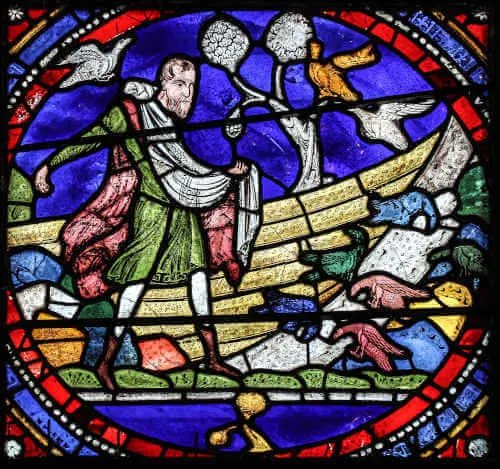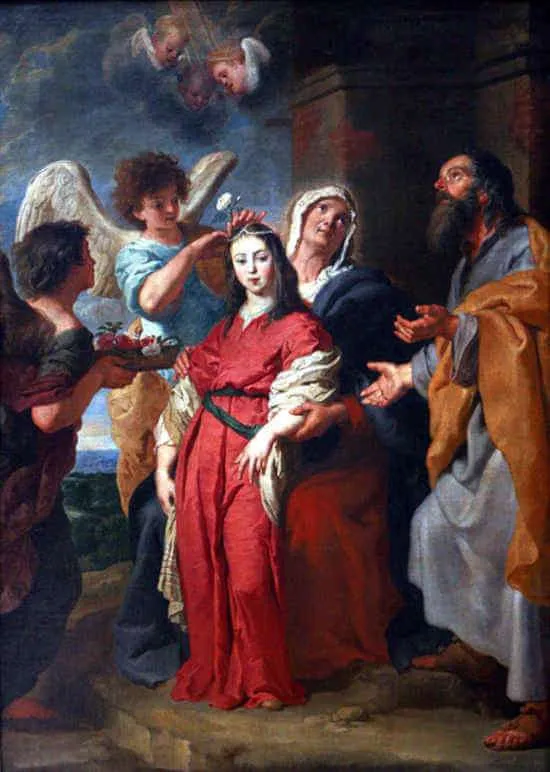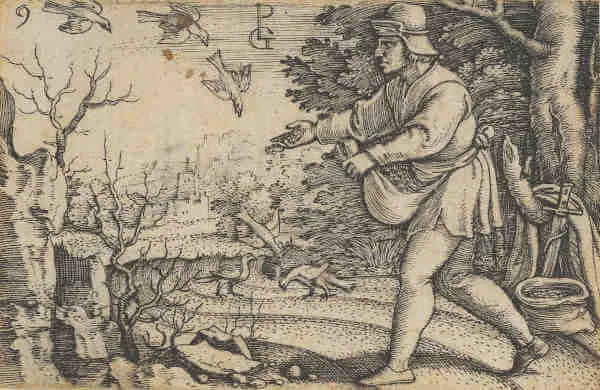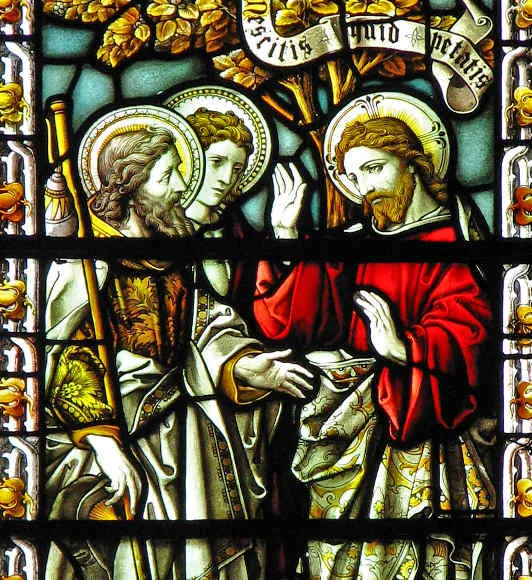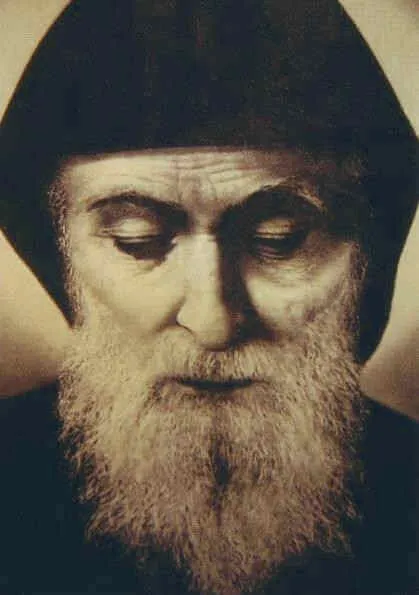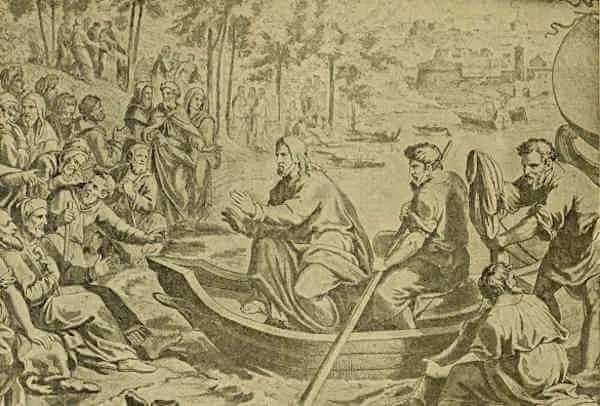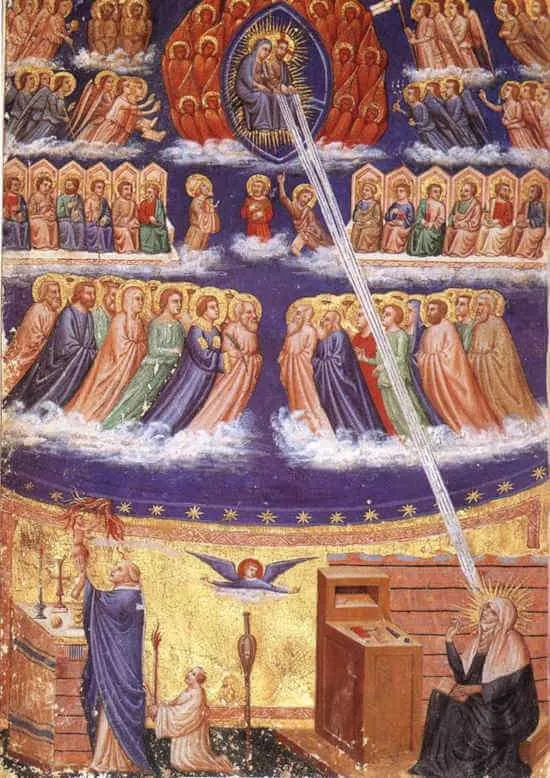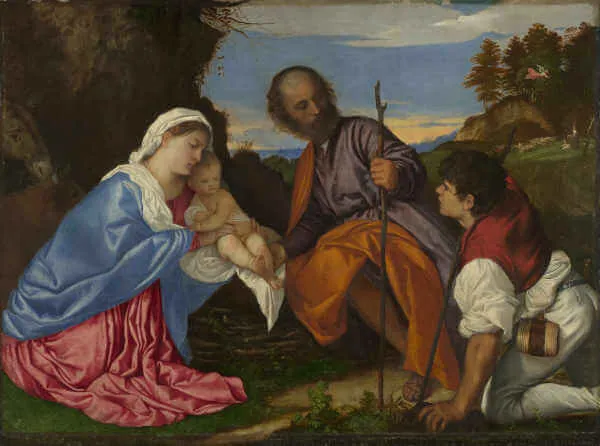Saint Bridget was born in Sweden into very comfortable circumstances. Her father was one of the wealthiest landowners in Sweden, and her mother came from a family of rulers, including kings of Sweden. Both were devout Catholics. After the death of her mother when Bridget was an infant, Bridget’s aunt played a central role in raising her. Bridget’s father greatly influenced her with his Friday devotions, by which he fasted and did penance, meditated on the Passion of Christ, received Holy Communion, and confessed his sins of the previous week. Her father’s devotion and her aunt’s faith had a profound impact upon Bridget, and she grew strong in faith from an early age.
It is said that Bridget never spoke a word until she was three years old. Once she began to speak, her words were directed to the praise of God, and never toward sinful conversation. When she was seven, she had a vision of the Blessed Virgin Mary who presented her with a crown. From that time on, Bridget’s seriousness about her spiritual life continued to deepen. At the age of ten, she heard a powerful sermon on the Passion of Christ; the next day she had a vision of Jesus crucified. When she saw Him, Jesus said to her, “Look at me, my daughter.” Bridget responded, “Oh, who has treated You this way?” Jesus responded, “Those who despise Me, and are insensible to My love for them.” As a result of this vision, Bridget became even more devoted to meditating on Christ’s Passion.
As was the custom of that time, when she was a young teenager, Bridget was given in marriage to a young man a few years older than her. Ulf Gudmarsson was a noble lord of Nericia, Sweden and a faith-filled Catholic. The couple’s first year of marriage was lived in prayerful abstinence, and they both might have even become lay Franciscans, making their home like a domestic monastery. Later, they had eight children together, two of whom died as infants. One of their children, Catherine, became a nun and was ultimately canonized a saint. Another one of their children, Charles, turned away from God, remaining indifferent to the faith. After the birth of their eight children, the couple once again lived in abstinence, opened their home to the care of the poor, and built a hospital. Around the year 1341, the holy couple and their children made a pilgrimage to Santiago de Compostela. During the return home, Ulf fell ill. He recovered well enough to return home but died in 1344 while convalescing in a Cistercian monastery.
After her husband’s death, Bridget devoted herself to a life of prayer and penance, and her visions of Jesus and Mary increased. These visions, often referred to as revelations, directed her life, instructed her to found a monastery, and revealed to her various mysteries and prophecies. She renounced her fine clothing, choosing instead a hairshirt and a religious’ outer garment of rough material. She distributed her wealth among her children and built a large monastery. The monastery was different from other monasteries in that it was for both men and women. Being a married woman, now widowed, she well understood the complementarity of men and women. Though the men and women lived in separate buildings, they came together for prayer. After it was built, the monastery had some sixty nuns, thirteen priests, four deacons, and eight lay brothers. They followed the Rule of Saint Augustine and embraced a mission of asceticism, devotion, and scholarship. The order began in 1346 and received final papal approval in 1370, just three years before Bridget died. It was at first called the Order of the Most Holy Savior, and later became known as the Bridgettines.
Shortly after founding the monastery, Bridget traveled to Rome for a pilgrimage and ended up staying there for the rest of her life. In Rome, she worked hard for the reform of the Church and offered counsel to popes and other clergy and nobility. She tirelessly urged the pope to return from Avignon, France, to Rome. Eventually, her influence, along with that of others—such as Saint Catherine of Siena—won out, and the pope returned to Rome in 1377, just a few years after Bridget’s death.
During her time in Rome, Bridget received numerous visions and began recording them. In the end, she filled eight volumes and hundreds of pages with descriptions of these visions and her conversations with Jesus. These writings have become known as “Celestial Revelations” or “Prophecies and Revelations.” They include details about the lives of Christ, the Blessed Mother, and the saints; an understanding of Heaven and hell; the mission of the Church; the Passion of Jesus; moral guidance; and prophecies about future events in both the world and the Church. For example, she foresaw the end of the Papal States and the creation of Vatican City in 1929. Her numerous visions and prophecies were widely disseminated in the Middle Ages in Europe, making Saint Bridget one of the most influential persons at that time. This is one of the reasons that she is one of the six patron saints of Europe.
Among her writings is a particular revelation and devotion that many continue to use today. Bridget prayed for a long time to learn from Jesus more about His Passion. Among her prayers was a request that Jesus reveal to her how many blows He suffered on His Body. Eventually, Jesus told her, saying, “I received 5,480 blows upon My Body. If you wish to honor them in some way, recite fifteen Our Fathers and fifteen Hail Marys with the following prayers, which I Myself shall teach you, for an entire year. When the year is finished, you will have honored each of My Wounds.” These prayers, which are commonly referred to as the “Fifteen Prayers of Saint Bridget,” have remained a popular daily devotion since the Middle Ages.
As we honor this girl of noble descent, this wife, mother, widow, religious, visionary, mystic, and saint, seek to imitate her by spending time pondering the Passion of our Lord. Our love for Jesus consoles His suffering Heart and wins us countless graces. Ponder Jesus’ Passion with Saint Bridget, especially by praying her fifteen prayers, and consider doing so for an entire year, so that you, too, will honor every blow Jesus’ body endured during His Passion.
Source: https://mycatholic.life/saints/saints-of-the-liturgical-year/july-23—saint-birgitta-religious/



